How to Spot and Substitute Seed Oils
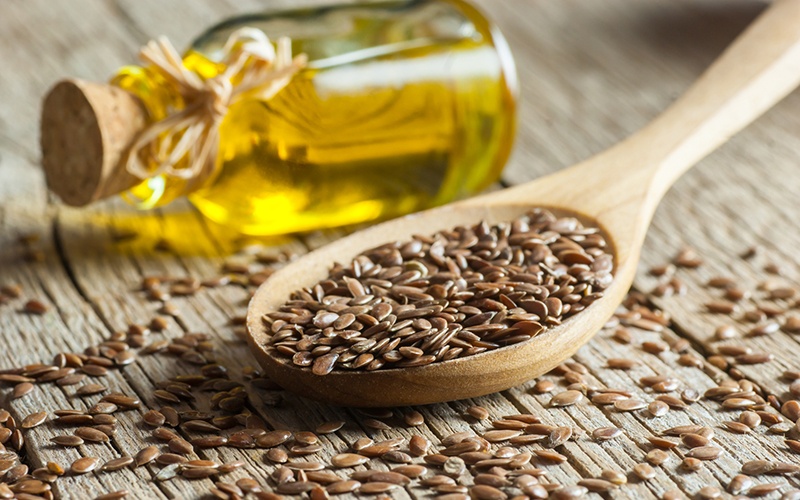
The following article was written by Heinen’s Chief Dietitian, Melanie Jatsek RD, LD.
If it comes from a whole food, it must be good for you, right? Well, not exactly. It depends on the amount of processing the food goes through before it gets packaged. Generally, the more processed a food is, the worse it is for your body.
Of course there are exceptions to this rule. For example, a fruit and vegetable smoothie contains all the original ingredients in a blended form. The result is a delicious meal-in-a-cup packed with vitamins, minerals, phytochemicals, and fiber—all good things!
Food becomes problematic when it is processed to such an extent that the final product becomes too concentrated in certain nutrients or substances. The old saying “too much of a good thing is never good,” holds true when it comes to food, especially seed oils.
What are Seed Oils and Where are They Found?
Seed oils are refined vegetable-based oils made by pressing and extracting the oil from the edible seeds of plants. Examples of seed oils that you may find bottled on the shelf are:
- Grapeseed
- Sunflower
- Corn
- Soybean
- Cottonseed
- Peanut
- Canola
- Safflower
Additionally, you will often find one or more of these oils in the ingredient list of packaged and processed foods. Seed oils are especially prevalent in certain:
- Breads
- Cereals
- Condiments (mayonnaise, barbecue sauce, salad dressings, etc.)
- Nutrition bars
- Canned soups
- Nuts and seeds with added oils
- Crackers
- Chips
- Frozen meals
- Coffee creamers
- Ice creams
- Dips (hummus, guacamole, etc.)
- Processed plant-based meat alternatives
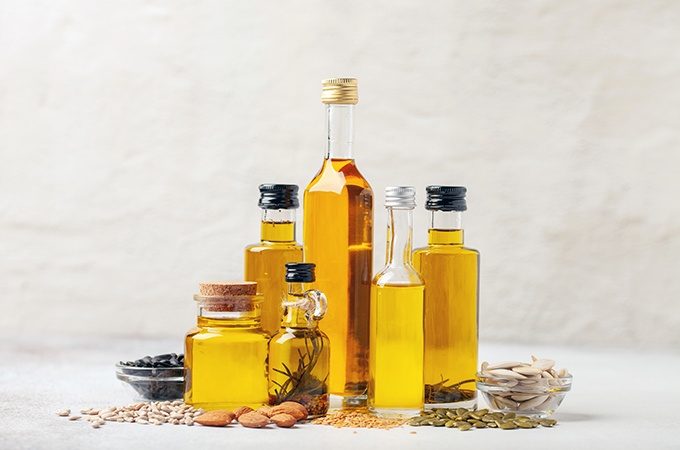
The Downside of Seed Oils
Seed oils are problematic for a couple of reasons. The first is due to the presence of large amounts of the omega-6 fat linoleic acid. This polyunsaturated fat is considered essential because your body can’t make it on its own.
Because they aren’t ultra concentrated like seed oils, it’s much safer to consume omega-6 fats in whole foods like nuts and seeds. A daily handful or two of unsalted walnuts or sunflower seeds as a snack or on a salad will give you plenty of this essential fat.
When overconsumed, though, it creates a storm of chronic inflammation in the body. This can lead to potential health issues like heart disease, Alzheimer’s disease, arthritis, diabetes, and cancer. The above list of oils is in descending order of omega-6 concentration, with grapeseed oil having the most.
Another undesirable effect of seed oils is their unstable nature. When heated to high temperatures, these oils easily oxidize and create toxic compounds called aldehydes, which can present serious threats to your health.
Note: High oleic sunflower and high oleic safflower oil consist of more than 80% oleic acid (a monounsaturated fat), making them very similar to extra virgin olive oil. Products made with these oils are better for you than those containing regular, highly processed sunflower and safflower oils.
3 Club Fx-Approved Non-seed Oils at Heinen’s
Three healthier, Club Fx-approved alternatives to seed oils for cooking and baking are Heinen’s extra virgin olive oil, avocado oil, and unrefined coconut oil. Instead of seeds, these oils are pressed from the fleshy pulp of the olive, avocado, and coconut fruit, creating a more stable fat with much lower amounts of omega-6 fatty acids.
1. Heinen’s Extra Virgin Olive Oil
Created by the first pressing of olives, extra virgin olive oil has the greatest health benefits overall, with about 73% monounsaturated fats. It is ideal for high and low heat applications, salad dressings, or for finishing dishes.
in 2023, Heinen’s removed all non-extra virgin olive oils, including “pure” and “light” varieties, so be sure to check out our top-quality olive oil selection, stocked with the world’s best 100% extra virgin olive oils.
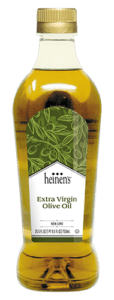
2. Heinen’s Avocado Oil
Avocado oil contains an abundance of heart-healthy monounsaturated fats. It is also considered a high heat oil, making it safe for cooking, baking, roasting, and grilling.
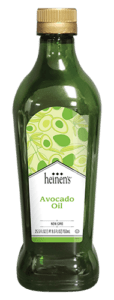
3. Heinen’s Unrefined Coconut Oil
This exceptional oil from the dry flesh of coconuts has earned an undeserving bad reputation due to its high saturated fat content. Around 45% of the fat in coconut oil comes from medium chain triglycerides (MCTs), a unique kind of saturated fat rich in antioxidants with anti-fungal, anti-bacterial, and anti-viral characteristics. Heinen’s unrefined coconut oil is great for baking and medium-to-high heat cooking (up to 350°F).
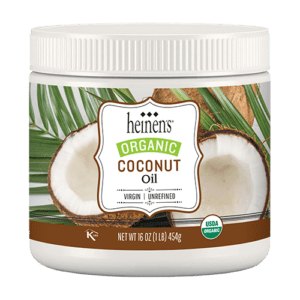
Key Takeaway
Reaching for healthier, more stable oils for cooking and baking is a great way to scoot the seed oils out of your diet.
Next, you’ll want to read the ingredients in packaged foods and avoid those with seed oils like sunflower, corn, canola, and others. This can be time-consuming, which is why Heinen’s has carefully combed through all the items throughout our stores to help you locate products made with better-for-you oils. Look for the green Club Fx-approved button to find the products that meet this standard!
At the end of the day, choosing more whole, unprocessed foods is the easiest way to reduce the seed oils in your diet—yet another reason to let Heinen’s fresh produce take center stage on your plate.


